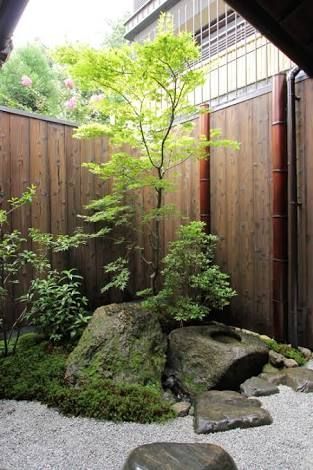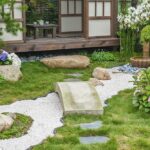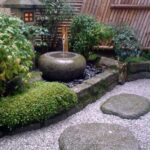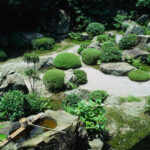Japanese garden design is renowned for its tranquility, harmony, and simplicity. Rooted in ancient Shinto and Buddhist philosophies, these gardens are carefully crafted to promote meditation and reflection. The design elements are meticulously chosen to create a peaceful and serene environment that encourages mindfulness and relaxation.
One of the key principles of Japanese garden design is the concept of asymmetry. Unlike Western gardens, which often strive for perfect symmetry, Japanese gardens aim to create a balanced yet naturalistic feel. This is reflected in the placement of rocks, plants, and water features, which are carefully arranged to mimic the organic flow of nature. The result is a garden that feels harmonious and inviting.
Water, in the form of ponds, streams, and waterfalls, also plays a central role in Japanese garden design. Water is seen as a source of purity and renewal, and its presence in the garden is believed to have a calming effect on the mind and body. Water features are often placed strategically to reflect the surrounding landscape and create a sense of serenity.
Another important element in Japanese garden design is the use of rocks and gravel. Rocks are carefully selected and placed to mimic natural formations such as mountains and islands. Gravel is often raked in intricate patterns to represent ripples in a pond or waves in the ocean. These elements work together to create a sense of movement and flow within the garden.
Plants are also an essential aspect of Japanese garden design. Traditional Japanese gardens often feature a limited selection of plants, carefully chosen for their symbolism and aesthetic value. Evergreen trees, such as pine and bamboo, are commonly used to symbolize longevity and resilience, while flowering plants like cherry blossoms and azaleas represent beauty and impermanence. The placement of plants is equally important, with careful consideration given to their size, shape, and color.
Overall, Japanese garden design is a beautiful and harmonious art form that reflects a deep appreciation for nature and the passage of time. By incorporating elements such as water, rocks, gravel, and plants in a thoughtful and intentional way, Japanese gardens create a tranquil and meditative space that encourages contemplation and introspection. Whether large or small, traditional or modern, Japanese gardens continue to inspire and captivate visitors with their timeless beauty and serenity.
















